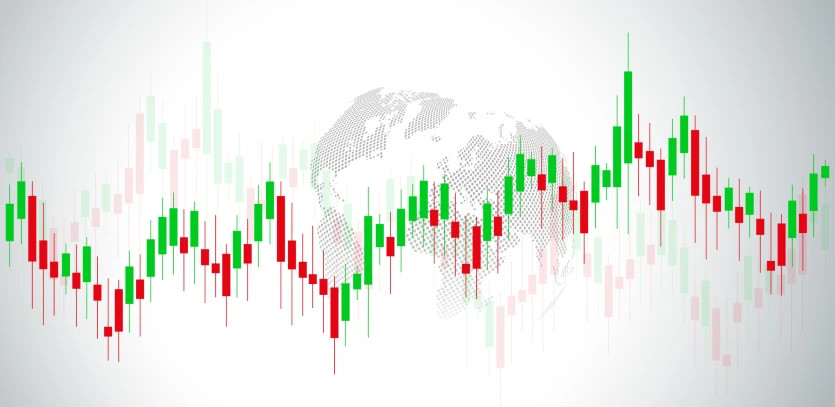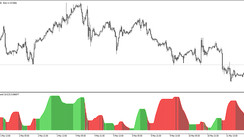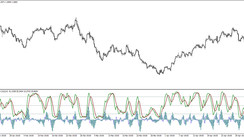From time to time, there are the so-called currency wars on world markets, with which countries try to gain some advantage in the markets and attract new investors.
Below, we will talk about what currency wars are and why they are here in the first place
What are currency wars?
A currency war is considered to be a situation in which, in return for an artificially induced depreciation of the currency of one country, another country responds in the same way. In practice, an example could be if the United Kingdom would devalue the pound, and, the US reacted by devaluation of the dollar, then such a situation can be considered a currency war.
Why do countries go through currency devaluation?
Currency depreciation has several effects. In the short term, devaluation increases the likelihood that the country's economy will grow. Unfortunately, as it happens, there are always two sides of the coin, And this also applies in the case of devaluation – along with the support for the economy of the country, it puts business partners at a disadvantage.
Practical effects of devaluation
Devaluation causes the currency to become relatively cheaper, which is reflected in the export, which also becomes cheaper for other countries. Finally, cheaper export in this case usually means an increase in demand, but in terms of productivity, it usually remains the same. On the other hand, in the case of import, devaluation, in turn, helps to hinder this negative effect, as imported goods become relatively more expensive.
Finally, the biggest plus in currency devaluation is that it usually has a positive effect on the trade and balance of payments, so it is sometimes used to address large macroeconomic deficits.
History of modern currency wars
Events after the First World War are usually mentioned as an example of the first modern currency war when the defeated Germany began to devalue its currency as it wanted to mitigate and in some cases eliminate the negative consequences that resulted from its defeat. Over a short period of time, the United Kingdom and France reacted to Germany's behaviour in the same way, and other countries later joined the same process. It may have seemed then that the constant devaluation of currencies had the "right" effect, but it later led to hyperinflation in Germany, which soon turned out to be devastating.
Another well-known currency war occurred during the time of US President Nixon. At that time, the dollar was devalued to boost employment and economic growth in the United States. This step, on the other hand, increased the likelihood that unemployment would increase in the case of US trading partners (importers of goods), which is why these countries also responded to this by devaluations of their own currencies. In the end, this currency war resulted in considerable speculation of the currencies that had turned, in some parts of the world, into currency crises.
Currency Wars of the “Present”
Some of the world's leading economists believe that economic strategies have seen a significant shift over time, which is also reflected in the functioning of the currency wars, where countries are now trying to make this process look more like political action rather than artificial economic intervention. Related to this is the fact that the time taken by other countries to "return" their devaluation usually increases.
In conclusion - Some selected currency devaluations after 2008
- Regular depreciation of the Japanese yen to support the domestic economy
- Regular US devaluation - printing new dollars to protect against adverse effects that may arise from subprime mortgages of 2008
- 2013 - Devaluation of the Czech crown by the CNB - support for the economy and exports
- 2015 - Chinese currency depreciation – support for exports
- 2019 - Further depreciation of the Chinese currency (trade war with the US)
The question remains, will the US devalue the dollar as a countermeasure to Chinese intervention?
If you are interested in trying trading for yourself with first class trading conditions and a professional forex broker, then do not hesitate to try our demo account, which can be opened on our website for free and without risk: www.purple-trading.com/en
We wish you many profitable deals!
About the Author

Team Purple Trading
Purple Trading is a true and 100% fair ECN / STP forex broker providing direct access to the real market. High speed orders execution, no trade-offs, no limits for any type of trading, the most advanced trading technologies. Explore more about Purple Trading at www.purple-trading.com .
CFDs are complex instruments and carry a high risk of losing all your capital quickly. 73.2% of retail investors lose their capital during trading CFDs with this provider.
(this number was determined for the period from 1 April 2018 to 31 March 2019). You should carefully consider whether you understand the operation of CFD instruments and if you can afford to take such high risks of losing your capital.
Trading in the foreign exchange margins market involves a high degree of risk and may not be appropriate for all investors. Trading with high leverage can work both for your benefit and against you. Before you decide to trade in the foreign exchange market, carefully consider your investment objectives, level of experience and risk appetite. There is a possibility that you will lose part or all of your initial investment, so it is not advisable to invest money that you cannot afford to lose. If in doubt, seek the advice of an independent financial advisor.
All opinions, news, research, analyses, prices or other information contained in this material are provided as a general commentary on the market and do not constitute investment advice. L.F. Investment Limited shall not be liable for any loss or damage, including but not limited to lost profit that may arise directly or indirectly from the use or reliance on such information.
Purple Trading is a trademark owned and operated by L.F. Investment Limited, a licensed Cypriot investment company, regulated by CySEC, Lic. 271/15.





